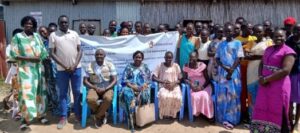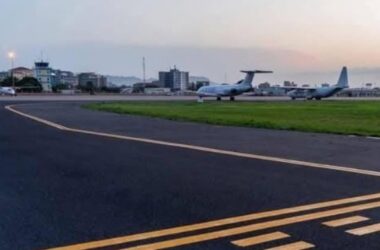
By Lodu William Odiya
In a bold effort to uplift grassroots women in Mangateen area of Juba city, women parliamentarians and community leaders are championing household economic empowerment and inclusive decision-making.
This initiative, implemented by Active Citizen South Sudan (ACSS) with funding from LM International (Global Office), marks a significant turning point in the lives of local crises affected women.
Decimated by almost a decade of conflict, displaced women in Mangateen have long been marginalized, confined chiefly to caretaker roles, excluded from both household and community decisions, and siloed from economic opportunities. But that narrative is changing.
This week, a crucial dialogue between women Parliamentarian and grassroots women showcased this transformation.
Over 50 beneficiaries attended the event, revealing how the program is equipping them to reclaim leadership and actively shape their futures.
With empowerment in action, Nyajima Wieypan Koang, 34, shared how the program’s support ranging from business start-up kits to mentorship has empowered women to step into economic and leadership roles both at home and beyond.
“This opportunity allows us to change lives,” she said.
“Being empowered and mentored it’s about building ties among women and prompting communities to rethink their inclusion in governance and economic activities.”
Young women echoed this sentiment. Nyabor Gatluak Pathot emphasized that the training enables them to break from generational struggles:
“We are no longer idle. We’re raising children better, overcoming community challenges, and contributing to societal welfare.”. “It underscores that women are vital leaders, not just locally, but globally.”
Cultural norms remain among the most significant barriers to women’s leadership in South Sudan. But the dialogue in Mangateen is steadily dismantling those stereotypes and ‘Turning Tradition on Its Head’.
As Nyabor affirmed, the movement to claim their space continued unabated.
Sophia Pal Gai, representing Nasir County, Upper Nile State, described the event as foundational for nurturing future women leaders:
“Leadership doesn’t emerge from nowhere. You have to start somewhere. Bringing such workshops to grassroots women affirms their recognition and potential.”
She urged women to seize opportunities in politics, business, and civic leadership, reminding them of the 35% affirmative action quota within the peace agreement framework. Sophia also emphasized the importance of women being active in all spheres including staying informed through media—and fostering unity and forgiveness to nurture peace.
Nyankuol Wicjiak, ACSS project officer, affirmed the organization’s commitment to sustained community engagement causing local leadership and lasting change.
“We remain dedicated to enhancing local welfare, ensuring women stay focused on what truly matters.” She expressed.
Early results are promising. Household incomes are rising, small businesses are taking roots, and communal harmony is strengthening.
James Mugisha, LM International’s program manager in Juba, reaffirmed the global office’s investment in visible, positive transformations.
Project participants, he noted, are now earning incomes, leading within their households and groups, and contributing meaningfully to their communities
As women in Mangateen continue to rise, their journey sends ripples of change across South Sudan, demonstrating that when empowered, one woman’s progress can uplift entire communities.




